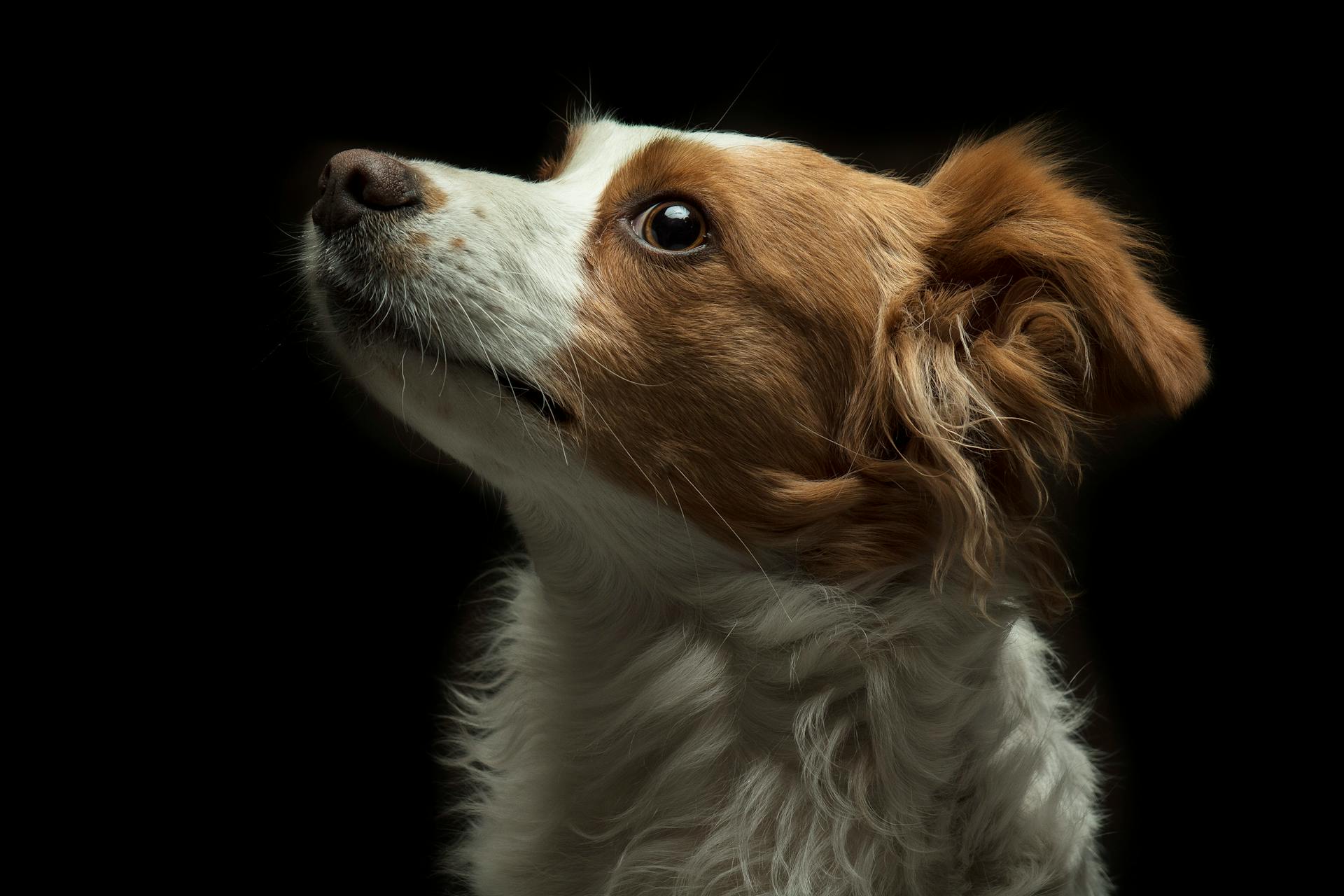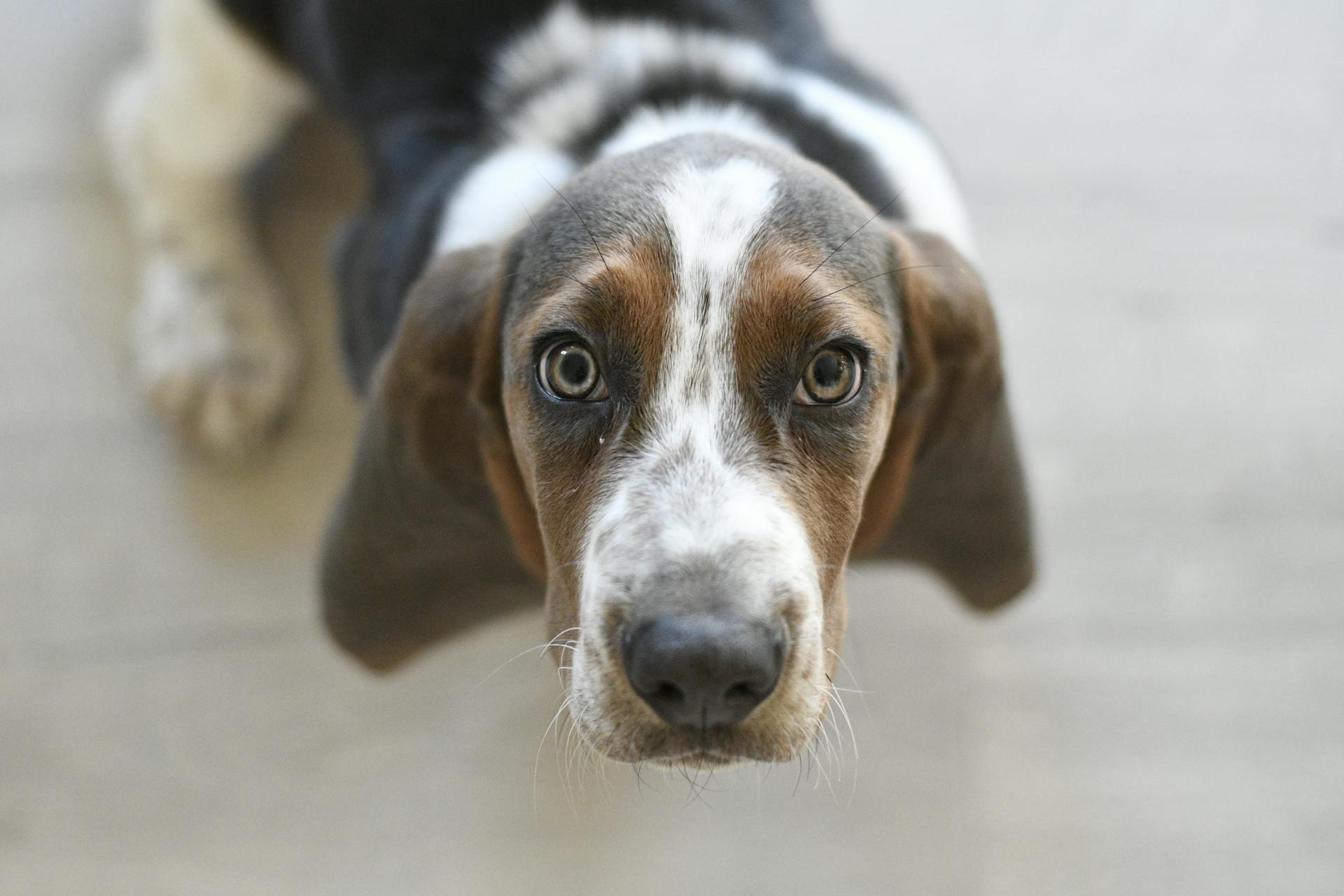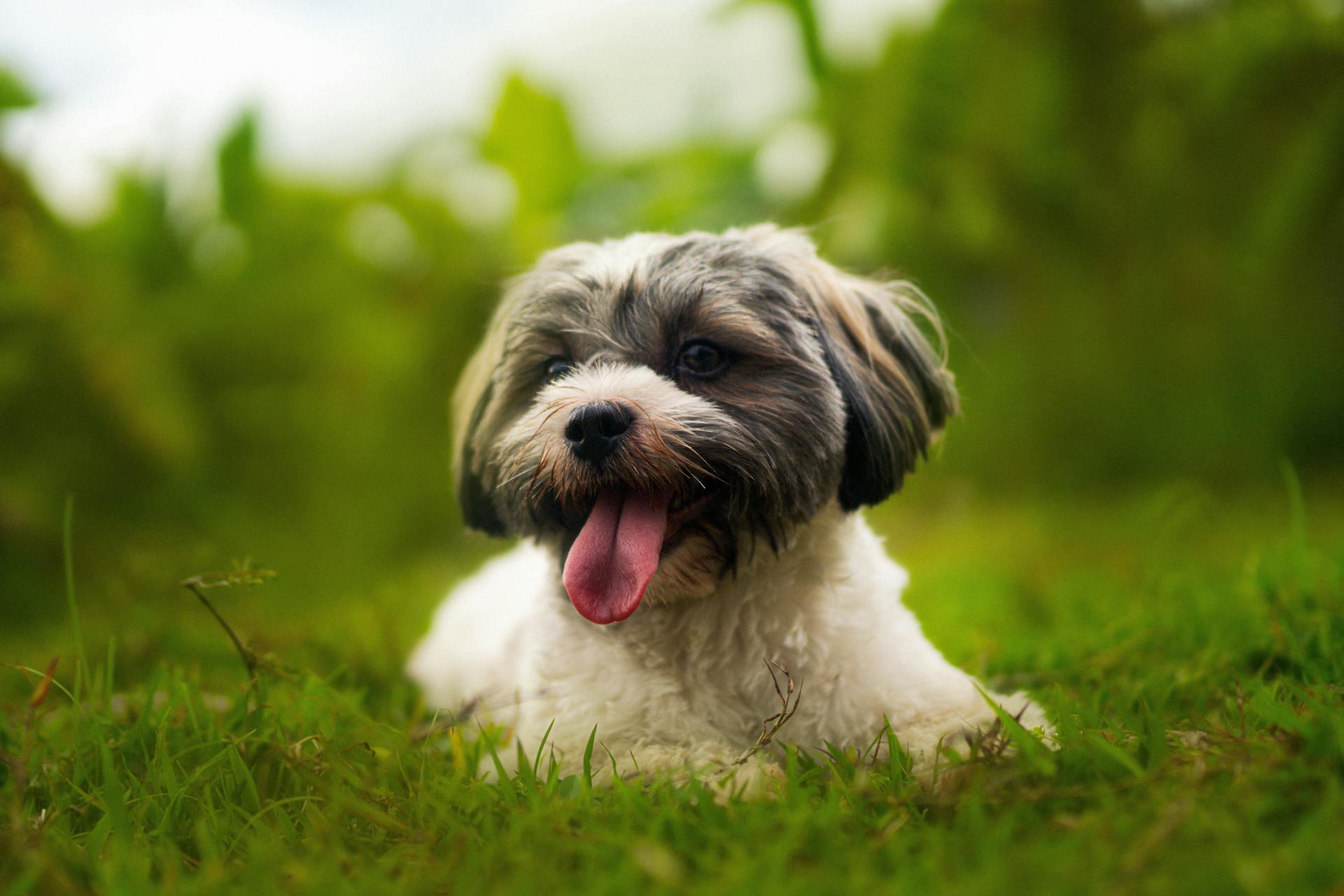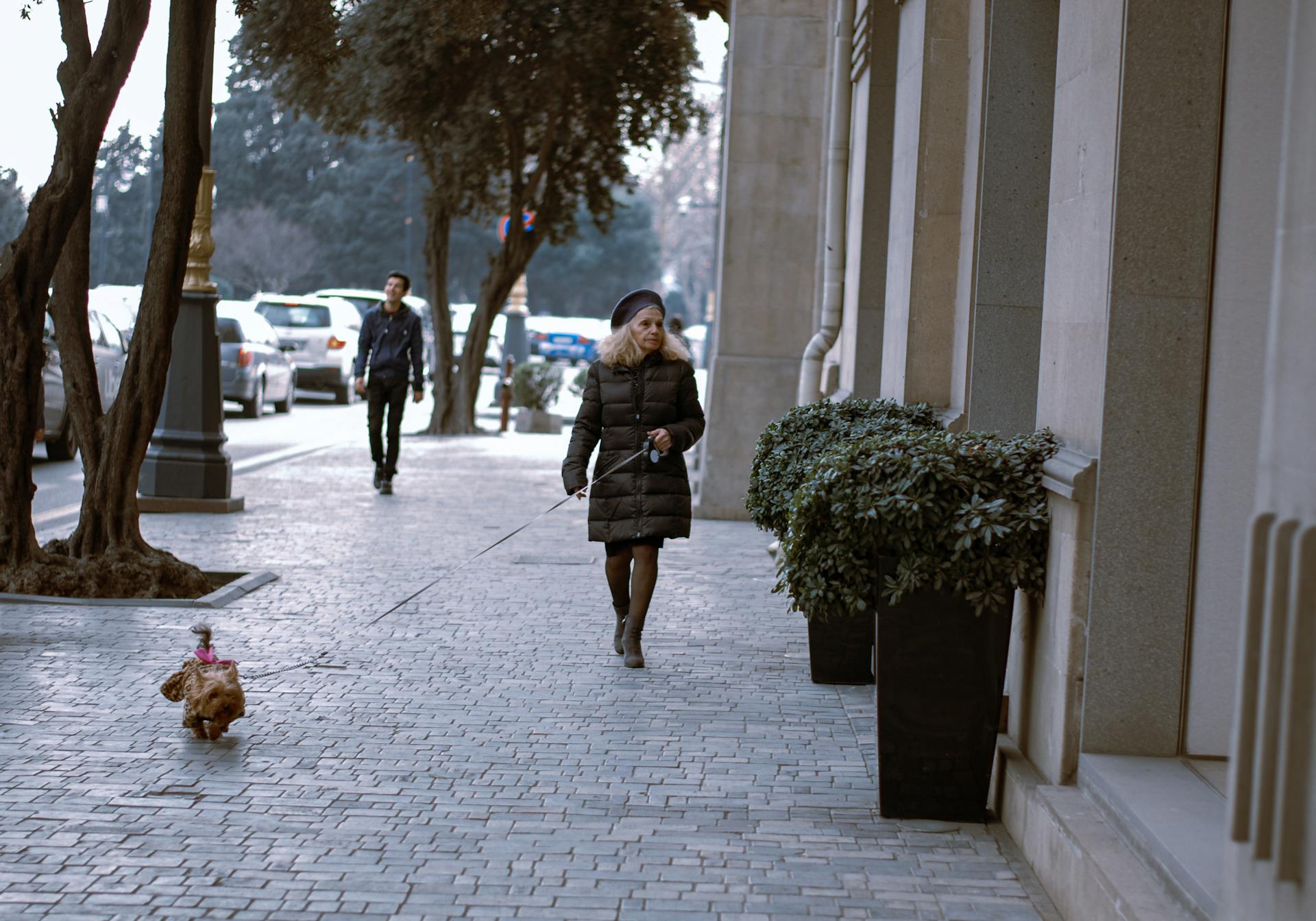
As your beloved Shih Tzu ages, you may notice a change in their energy levels and activity. They may not be as playful as they once were, and that's okay! Shih Tzus typically live between 10 to 16 years, and their lifespan can vary depending on their health and genetics.
Their reduced energy levels can be attributed to the natural aging process, which affects their joints and muscles. This is why it's essential to adjust their exercise routine to prevent overexertion and pain.
As your Shih Tzu ages, their dietary needs may change. They may require a senior dog food that is easier to digest and contains joint supplements to support their health.
Senior Life Changes
As your Shih Tzu enters their senior years, around 9 or 10 years old, you might notice changes in their physical abilities. They might not move as fast or have as much stamina as they used to.
Cloudy eyes and hearing loss are common issues that can occur during this stage. It's essential to recognize that these changes don't mean your pup can't still enjoy life, but rather that you need to help them do it in a different way.
You'll need to make adjustments to your dog's diet, exercise routine, and living space to ensure they're comfortable and happy.
Adjust Your Environment
As your Shih Tzu enters their senior years, you'll need to make some adjustments to their environment to ensure they feel safe and comfortable.
You'll want to set up their bed on the floor, as they won't be doing much jumping anymore.
Keep their food and water in the same place, so they always know where to find it.
Older dogs struggle to regulate their body temperature, so make sure they have access to a warm space.
A cozy blanket in their dog bed can be a lifesaver on chilly days, and consider a doggy sweater for when you take them outside.
If your pup's mobility is declining, a doggy ramp can help with getting in and out over a raised stoop.
However, be aware that as their vision declines, the likelihood of falling off the bed increases, so it might be safer to get them used to sleeping on the floor next to your bed.
You can also consider using bed rails, similar to those used for toddlers, to prevent falls.
Adjust Your Food
As your Shih Tzu enters their senior years, you'll need to make adjustments to their diet. Many senior Shih Tzus experience weight gain due to decreased physical activity, so it's essential to choose a food that helps with weight management.
You can start by asking your vet if a senior dog food is a better fit for your aging pup. These foods are specifically designed to meet the nutritional needs of older dogs.
Since older dogs tend to have sensitive teeth, it can become difficult for them to eat hard kibble. You can switch to wet food or soften their existing dry food by placing warm water in their food bowl and letting it sit for a few moments.
A good rule of thumb is to feed your Shih Tzu around 1 cup of dry food per day. If you're offering wet food, follow the manufacturer's guidelines regarding the amount.
Take a look at this: Weight Chart for Shih Tzu
Health and Care
As your Shih Tzu ages, it's essential to increase vet visits to every 6 months, as older dogs have weaker immune systems.
You should also pay close attention to your dog's dental health, with proper cleanings and oral care. Special bloodwork may be recommended by your vet to detect potential issues early on.
Shih Tzus are prone to certain health conditions, including cleft lip, otitis externa, and urolithiasis. They're also at risk for brachycephalic syndrome, eye problems, and intervertebral disc disease.
Here are some common health concerns in Shih Tzus:
- Cleft Lip
- Otitis Externa
- Urolithiasis
- Brachycephalic Syndrome
- Eye Problems
- Intervertebral Disc Disease
As your Shih Tzu ages, they may require supplements to support their nutrition, such as Omega-3 fatty acids, to help with joint health and skin issues.
Promote Physical Activity
As your dog ages, it's essential to promote physical activity to maintain their overall health and well-being.
You can still go for walks, but be prepared to shorten the duration as your dog's energy levels decrease.
You might enjoy: Definition of Shih Tzu
Light play sessions can be a great way to keep your dog active, especially for breeds like Shih Tzus.
Monitor your dog carefully during these times of activity and adjust the routine as needed to ensure their comfort and safety.
By making these adjustments, you can help your dog stay healthy and happy throughout their golden years.
Boost Veterinary Care
Boosting veterinary care for your aging dog is crucial for their health and well-being.
Senior dogs require more frequent check-ups, ideally every 6 months, due to their weakened immune systems.
You should also prioritize proper dental cleanings and oral health care to prevent potential issues.
Special bloodwork may be necessary to detect any potential health problems early on, allowing for successful treatment.
By staying vigilant and paying attention to changes in your dog's behavior and habits, you can catch any potential issues before they become serious.
As your dog ages, they may require supplements to ensure they're getting all the necessary nutrients.
Related reading: How to Take Care of Shih Tzu Puppy
Health and Conditions
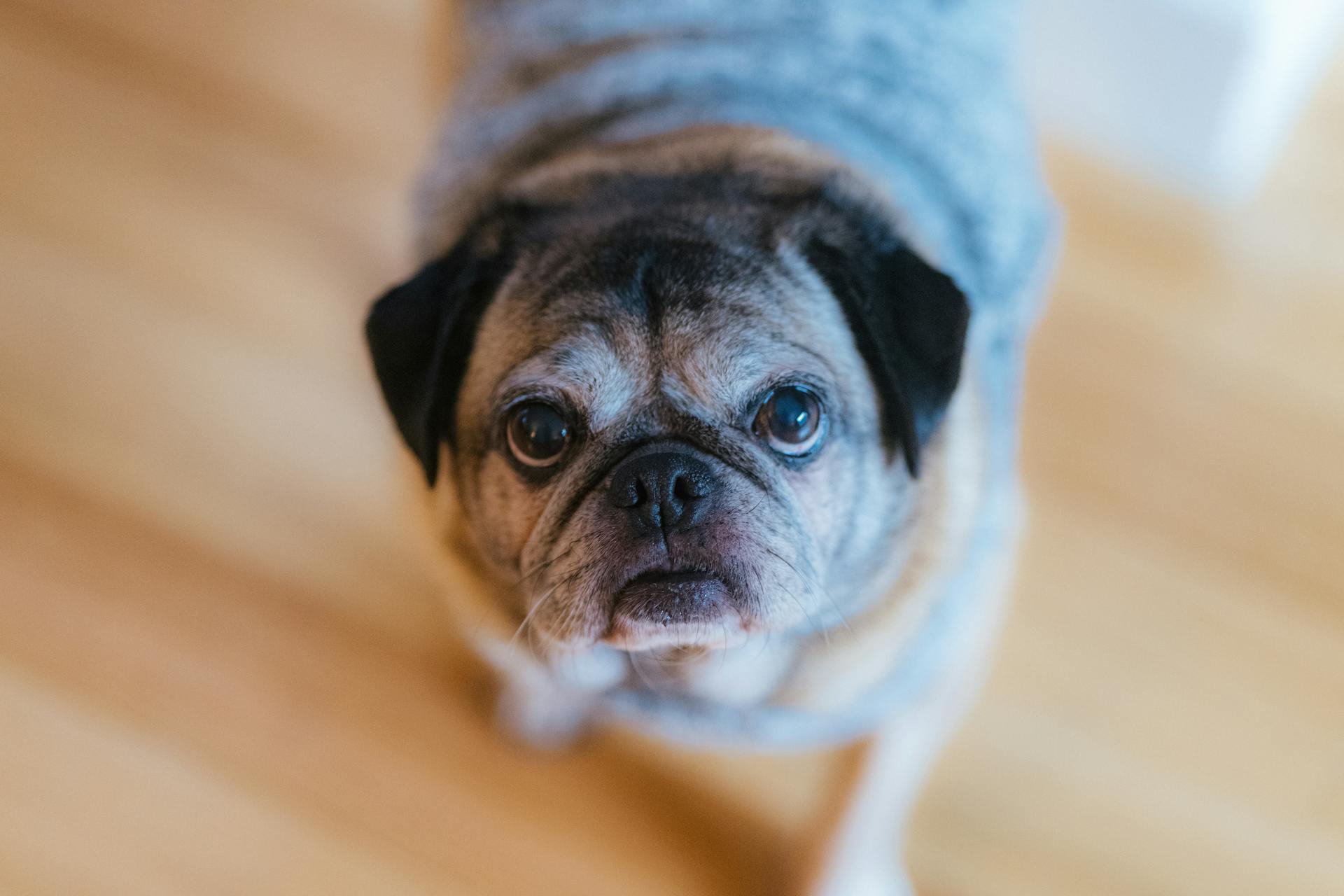
As your furry friend ages, it's essential to keep a close eye on their health. Senior dogs, like any of us, need regular check-ups with their vet to stay on top of things. Many veterinarians recommend bi-annual visits instead of yearly ones to account for weaker immune systems.
Proper dental care is also crucial for your dog's overall health. Regular cleanings can help prevent issues like bad breath, gum disease, and even heart problems. Don't forget to brush those teeth regularly!
Some breeds are more prone to specific health issues. For example, Shih Tzus are known to live up to 20 years, but they can be susceptible to conditions like intervertebral disc disease and brachycephalic syndrome. Keep an eye out for any signs of these issues, such as difficulty breathing or back problems.
Here are some common health concerns in Shih Tzus:
- Cleft Lip
- Otitis Externa
- Urolithiasis
- Brachycephalic Syndrome
- Eye Problems
- Intervertebral Disc Disease
If you have a Cavalier King Charles Spaniel, be aware that they're prone to heart conditions, with CHD being a major concern. Your vet may recommend DNA testing to identify potential issues.
Food & Diet
As your Shih Tzu ages, their nutritional needs change, and supplements can help fill the gaps. Omega-3 fatty acids are a vital component of their nutrition, and your vet can recommend suitable supplements.
Shih Tzus are prone to weight gain as they age, especially if they decrease their physical activity. To prevent this, consider dog foods that help with weight management.
A nutritious diet is essential for a senior Shih Tzu, and you should pay close attention to what they eat. This might involve switching to senior dog foods or softening their existing dry food by soaking it in warm water.
Small breeds like Shih Tzus have small daily feeding requirements, typically around 1 cup of dry food per day. Choose a food formulated for small breeds to ensure they get the right protein and vitamins.
Treats should not make up more than 10% of your dog's daily calorie intake, and you should measure and weigh them carefully to avoid overfeeding. Even small increases in treats can lead to considerable weight gain in a 10-pound dog.
Here's a rough guide to help you estimate your Shih Tzu's daily food intake:
Remember to consult with your vet for personalized advice on your Shih Tzu's diet and nutrition.
Dog Insurance Costs
Shih Tzus are one of the cheapest types of purebred dogs to insure in the US.
The average ManyPets premium for Shih Tzus was $31 per month in 2022.
This low cost is due to the breed's tendency to be relatively healthy.
Breeds that are more prone to health conditions tend to cost more to insure.
Your pet's age and location will heavily affect your monthly price.
Your pet's premium may differ from the average, even among Shih Tzus.
It's a good idea to purchase dog insurance when your Shih Tzu is still young.
This way, you're far less likely to encounter any pre-existing condition exclusions.
Recommended read: Shih Tzu Maltese Mix Cost
Breed History
The Shih Tzu breed has a rich history that spans over 1,000 years, with records showing that short, square dogs existed in China as early as 1000 B.C.
The exact origin of the breed is unclear, but it's believed to have originated in Tibet, where they were highly prized by the royal family. They were likely sent as gifts to the Chinese royalty, who then bred them with Pekingese or Pugs to create the modern-day Shih Tzu.
The breed was bred specifically as a companion dog, never meant to be a working dog, and as such, they demand attention from their owner and can struggle with separation anxiety if left alone for too long.
The Breed is Over 1,000 Years Old
The Shih Tzu dog breed has a rich history that spans over 1,000 years. Documentation of the breed goes back at least 1,000 years, with records showing that short, square, "under the table" dogs existed in China as early as 1000 B.C.
These early dogs were likely the ancestors of the Shih Tzu. They were short and stout, and their features would eventually become the trademark of the breed.
The Shih Tzu was bred as a companion dog, never a working dog. They were meant to keep their handler or owner company, and this is still evident in their behavior today.
In fact, modern Shih Tzus demand attention from their owner and can struggle with separation anxiety if left alone for too long. This is a testament to their original purpose as a companion animal.
Few Dogs Saved the Breed
The Shih Tzu breed has a fascinating history, and one of the most surprising facts is that a small number of dogs saved the breed from extinction.
For another approach, see: Different Shih Tzu Breeds
In the first half of the 20th century, the breed's numbers dwindled to almost nothing, leaving only 14 dogs to rebuild the breed.
These 14 dogs, seven males and seven females, are the ancestors of every Shih Tzu alive today.
Their survival is a testament to the dedication of breeders who worked tirelessly to preserve the breed.
The Communist Revolution in China and the death of the Dowager Empress Tzu Hsi in 1908 contributed to the breed's decline, making it nearly impossible to get a Shih Tzu.
Many Shih Tzus were killed during this time due to their association with wealth.
Breed Characteristics
Shih Tzus are known for their spunky but sweet nature, making them a great companion for families with children. They have a gentle side that makes them perfect for snuggling on the couch.
Their upbeat attitude means they love to play and romp around, but they're also happy to curl up for a nap. They're affectionate to their family and often good with kids.
Despite their small size, they can be surprisingly tough and may have a stubborn streak, which can make training a bit challenging.
Coats Come in Many Colors
The Shih Tzu coat is a beautiful and unique feature of the breed. It's comprised of two distinct layers, which can make grooming a bit tricky.
Not all Shih Tzu coats are the same, so it's normal for it to take some trial and error to perfect a grooming routine. Many owners find that it's a process of discovery to figure out what works best for their dog.
The good news is that many Shih Tzu coats can change as the dog matures. This typically happens around 10 to 12 months old, so be patient and you'll likely see a change for the better.
Broaden your view: Groomed Shih Tzu
Temperament and Characteristics
Shih Tzus are an affectionate, lively, and sweet-natured companion breed. They love to be petted and pampered and are happiest when spending time with their family and giving (and receiving) lots of attention.
They can develop separation anxiety and shouldn't be left alone for long periods of time. This means they need regular interaction with their owners to stay happy and healthy.
Shih Tzus make great family pets and are loyal and affectionate toward their owners. They're good with children in general, though they're perhaps a bit better suited to older children.
They're not always an easy breed to train, and it can take some time and patience to socialize and potty train them. Training should always involve lots of praise and rewards.
Shih Tzus aren't overly active, but they do need some form of exercise each day. 20 to 30 minutes of play and exercise should be enough.
They're flat-faced, which means they can be loud snorers and may have problems managing their own body temperature, leading to heavy panting.
Grooming
Grooming is a significant aspect of owning a Shih Tzu, requiring daily attention to their long coat. Daily combing and brushing is essential to prevent matting and tangling.
You can expect to trim your Shih Tzu's nails when they get long enough that you can hear them clicking on wooden floors. Be careful not to cut too far up the nail, stopping before you reach the solid white section.
A fresh viewpoint: Shih Tzu Long Hair Styles
Brushing your pup's teeth at least three times a week is crucial for their oral health. You can supplement this with dental treats to help prevent plaque and tartar buildup.
Their hair grows quite quickly, so regular haircuts are necessary to keep their coats trimmed and relatively short. This makes them much easier to maintain and groom.
Taking your Shih Tzu to the groomer once every four to six weeks can be a good option, depending on the length of their coat.
Frequently Asked Questions
What age is considered old for a Shih Tzu?
For Shih Tzus, old age is typically considered to be around 10 years, after which they are considered seniors. Regular veterinary check-ups can help identify any age-related health issues early on.
Can a Shih Tzu live 20 years?
While 20 years is above the average life expectancy of a Shih Tzu, some have been known to live up to 23 years, making it possible but not typical. However, with proper care, a Shih Tzu can live well into its teens.
Featured Images: pexels.com
